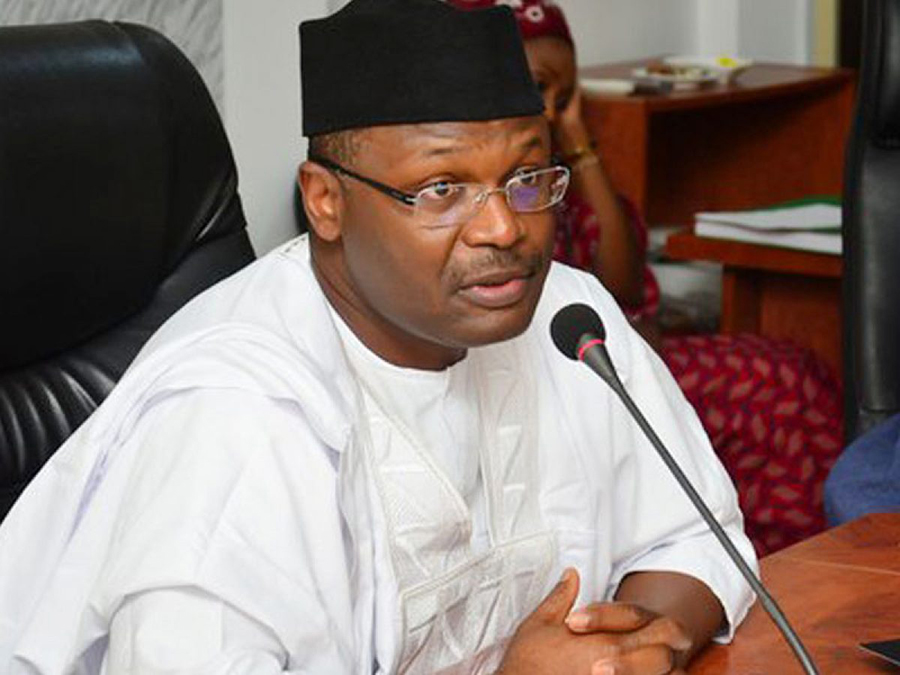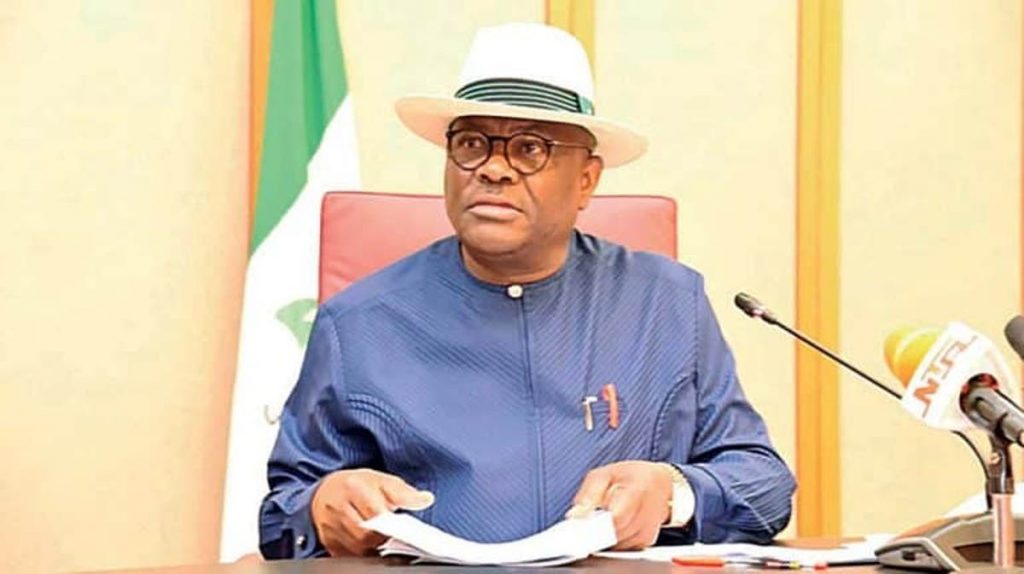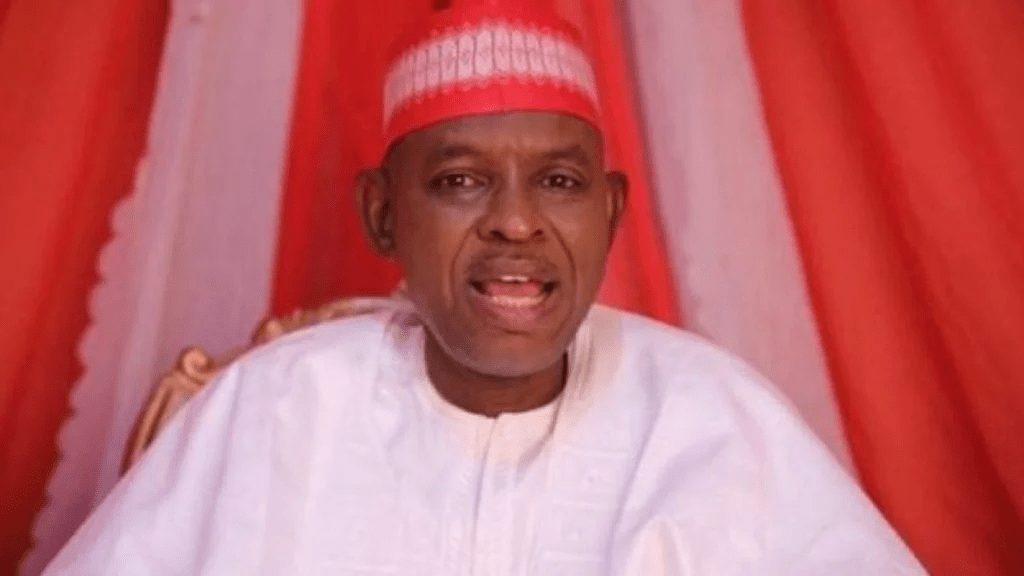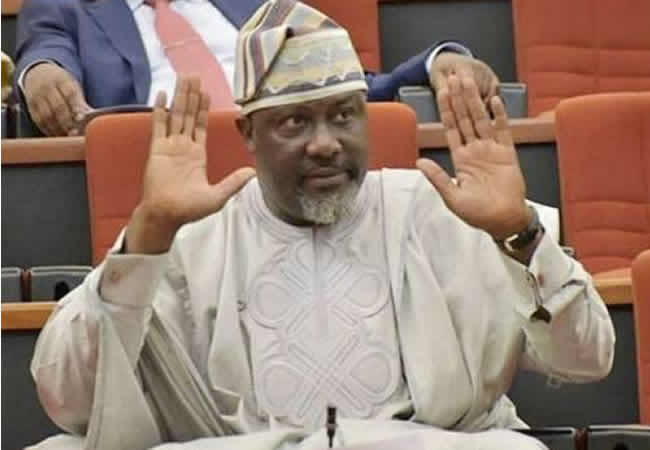Politics
Why Political Parties’ Audited Accounts Haven’t Been Published Since 2016 –INEC

Indications have emerged that the refusal of political parties to submit to the Independent National Electoral Commission their annual financial statement as required by the constitution and the Electoral Act has prevented the commission from monitoring their finances and publishing the same as mandated by the constitution.
INEC confirmed to Sunday PUNCH that it audited the accounts of the parties up to 2016 and it had gone far on their 2017 and 2018 accounts, whilst awaiting the remaining years.
INEC Chairman, Prof Mahmood Yakubu, said at a meeting with chairmen of political parties in March 2021 that only one political party complied with the constitutional provision, warning that their refusal to comply was in contravention of the law.
Yakubu had said, “I wish to remind you that the Electoral Act 2010 (as amended) requires each political party to submit two election expenses reports to the commission. First is the disclosure of material contributions received from individuals and corporate bodies three months after the announcement of the results of the General Election as provided for in Section 93(4) of the Electoral Act. So far, no political party is in compliance.
READ ALSO: INEC Announces Deadline For Continuous Voter Registration
“Secondly, parties are required to submit audited returns of their election expenses within six months after an election as provided for in Section 92(3)(a) of the Electoral Act. Although we are still within the time frame provided by law, so far only one party has filed its returns. Similarly, the commission notes that only one presidential candidate has submitted financial expenses report. We wish to remind leaders of political parties of their obligations under the law.”
A top source in the commission however told our correspondent that the reason INEC had defaulted in publishing the accounts annually, in line with the constitution, was because political parties had refused to comply.
The source said, “The truth of the matter is that the parties have not been complying. I don’t know how many of them have been complying, but the big ones have not. These are our stakeholders and we meet with them, so we don’t want it to appear as if we are dragging them in the media.”
When asked why the commission did not sanction them for not complying, the source said, “We try to persuade them to do what is expected of them rather than wield the big stick. The current chairman likes to persuade people instead of imposing sanctions all the time. It is only when we try all persuasive means and they don’t change that we apply sanctions, and then they come begging.
“When the chairman comes out to speak like that, it’s a note of warning to them and we expect that they should understand. They don’t have to wait till the commission comes hard on them in that regard.”
Meanwhile, when asked why the commission has not published the parties’ audited accounts for years, violating the constitution that seeks to entrench transparency and accountability in the way the parties are run, the Chief Press Secretary to INEC Chairman, Mr Rotimi Oyekanmi, said, “The commission has audited the accounts of political parties up till 2016 and we have gone far on 2017 and 2018 accounts.
“However, the advent of the Covid-19 pandemic in 2019 slowed us down. Don’t forget also, the commission deregistered 74 political parties in February 2020 and we now have 18 political parties. However, we have made substantial progress and work on this issue will be completed in due course.”
Section 86 of the Electoral Act mandates every political party to submit its detailed annual statement of account to the commission, which would be audited by the commission and subsequently published in two national newspapers and the commission’s website.
READ ALSO: 2023: INEC Rejects Extension Of Deadline For Party Primaries
Section 86 (1) states, “Every political party shall submit to the commission a detailed annual statement of assets and liabilities and analysis of its sources of funds and other assets, together with statement of its expenditure including hard and soft copy of its list of members or in such a form as the commission may require.
“(2) Any official of the political party who contravenes subsection (1) commits an offence and is liable to a fine of Nl,000,000 or imprisonment for a term of six months or both. (3) A political party shall grant to any officer authorised in writing by the commission, access to examine the records and audited accounts kept by the political party in accordance with the provisions of this Act and the political party shall give to the officer all such information as may be requested in relation to all contributions received by or on behalf of the party.
“(4) The commission shall publish the report on such examinations and audit in two national newspapers and the commission’s website within 30 days of receipt of the results.”
Similarly, section 15, under Part I of the Third Schedule of the 1999 Constitution (as amended), mandates the commission to “monitor the organisation and operation of the political parties, including their finances,” and “arrange for the annual examination and auditing of the funds and accounts of political parties, and publish a report on such examination and audit for public information.”
Also, Section 225 (1) states, “Every political party shall, at such times and in such manner as the independent National Electoral Commission and publish a statement of its assets and liabilities.” The subsection (2) adds, “Every political party shall submit to the Independent National Electoral Commission a detailed annual statement and analysis of its sources of funds and other assets together with a similar statement of its expenditure in such form as the Commission may require.”
When contacted on the reason for their refusal to submit their detailed accounts annually, some of the major parties did not answer their calls.
PUNCH.
Politics
2027: Rivers APC Pledges To Follow Wike’s Instructions

Leadership of the All Progressive Congress (APC) in Ahoada West Local Government Area of Rivers State, has declared that whatever instruction the Minister of the Federal Capital Territory (FCT), Nyesom Wike, gives on the 2027 elections concerning the State will be followed.
The Chairman of the party, Mr Rejoice Otobo, stated this during Wike’s “thank you” visit to the local government area on Sunday.
Otobo assured Wike that the people would not fail him because of what he has done in the area.
“We await instructions from you on the 2027 elections concerning Rivers State. Wherever you ask us to go, there we shall go; whatever you ask us to do is what we will do.
READ ALSO:Wike Speaks On Defecting To APC
“All the good and the bad people of the LGA have decided that where you want us to go is where we will go,” the chairman said.
Similarly, his counterpart in the Peoples Democratic Party (PDP), Mr Ikechukwu Obuzor, said that the minister has given Ahoada people hope and pledged complete loyalty.
“I want to say that we are standing firm with you. Wherever you go, we will go. Be rest assured come 2027, Ahoada West will deliver the needed results for you,” he said.
Earlier, Chairman of Ahoada Local Government Council, Mr Chita Eugene, who described Wike as “the political field marshall of South South”, praised him for the unprecedented development he attracted to Rivers State.
READ ALSO:Fubara: All Can Never Be Well, Everybody Knows My Position – Wike
Eugene said that the visit was not just a thank you visit; it was a celebration of effective leadership and public service.
Also, House of Representatives member representing Ahoada West/Ogba-Egbema/Ndoni Federal Constituency, Victor Obuzor, said that Wike deserved his support because he had done well for the LGA, and equally transformed Rivers State during his tenure as governor of the state.
Similarly, the Seyi Tinubu Support Group, led by Chidi Amadi, equally pledged their support to Wike and reelection of President Bola Tinubu for a second term.
In his remarks, Wike explained that he was in the area to thank the people for the overwhelming support given to him and Tinubu during the 2023 elections.
READ ALSO:PDP Issues Certificate Of Expulsion To Wike, Fayose, Anyanwu, Others
He said that Rivers State used to be respected for its strong political stand on good governance across the country until bad governance happened.
The minister, who insisted that Governor Siminalayi Fubara must not be voted for a second term, stressed the need to restore the glory of the state in the political landscape of the country.
This, he said, would be achieved by correcting the leadership mistake in the state in 2027.
“Already, Rivers State is being respected because of what we are doing in FCT. We need a leader we can trust to drive our dear state to glory and progress,” the minister said.
Politics
Why Kano Governor Postponed Formal Defection To APC

…You can’t betray me to succeed ―Kwankwaso
The much-anticipated defection of Kano State governor, Abba Kabir Yusuf, from the New Nigeria People’s Party (NNPP) to the All Progressives Congress (APC) has allegedly been postponed.
This is just as leader of the NNPP and former Kano State governor, Senator Rabiu Musa Kwankwaso, warned party members against political betrayal, insisting that defection from the movement has never brought lasting success.
According to a reliable source who preferred anonymity, the official defection of the governor earlier scheduled for Monday, January 5, 2026, has now been shifted to Monday, January 12, 2026.
The source noted that Governor Yusuf requested additional time to conclude consultations with key political actors.
READ ALSO:You’re Not 001 – Wike Rubbishes Claims Of Fubara Being APC Leader In Rivers
The source, who was present at a meeting between Governor Yusuf and Vice President Kashim Shettima in Abuja on Friday, said the governor is seeking to engage a few remaining state legislators and other critical stakeholders who are yet to fully align with the proposed political realignment.
“Kano is a politically sensitive state and the governor wants to ensure that all necessary consultations are completed before making such a major decision,” the source said.
But Kwankwaso, who spoke during a meeting with supporters at his residence in Kano, said he was neither surprised nor disturbed by the alleged moves of some members planning to defect from the party to rival political parties.
In a viral video from the gathering circulating on social media, Kwankwaso stressed that political history is unforgiving to those who abandon the movements that brought them to prominence.
READ ALSO:Why Kwankwaso-Atiku Alliance Can’t Work — APC Chief
“I want to remind those who left us that nobody has betrayed us and succeeded,” Kwankwaso said. “Political history is very clear on this matter. Those who believe they can rise by betraying the people and the movement they came from should think deeply.”
The former governor, who was the NNPP’s presidential candidate in the 2023 general election, said the strength of the party does not depend on the loyalty of a few political office holders but on the support of ordinary citizens, who believe in the ideals of the Kwankwasiyya Movement.
“I am not disturbed by these developments.
“What truly matters is the support of the masses, not the movement of a few politicians who are chasing personal interests,” he added.
Kwankwaso pointed to the large turnout of supporters at the meeting as evidence that the NNPP continues to enjoy strong grassroots backing across Kano State despite the rumours of political realignments.
READ ALSO:Kwankwaso Sends Message To Trump After US Invasion Threat
“You can see with your own eyes the number of people who came here today. This shows clearly that our movement is alive, strong and firmly rooted among the people of Kano,” he said.
He reaffirmed the party’s commitment to people-centred governance, social justice and political inclusion, describing the Kwankwasiyya Movement as bigger than any individual and resilient to political manoeuvring or defections.
Kano, long regarded as a strategic hub of northern Nigerian politics, has been rife with speculation following reports of the governor’s planned defection. The development has continued to generate intense political interest, with analysts saying that Yusuf’s move could significantly alter the balance of power in the state.
As of the time of filing this report, neither the Kano State government nor the leadership of the NNPP and APC has issued an official statement on the postponed defection.
Politics
Dino Melaye Reacts To Malami’s Arraignment For Money Laundering

Ex-Kogi West senator, Dino Melaye, has reacted to the arraignment of a former Attorney General of the Federation, AGF, Abubakar Malami, before an Abuja Federal High Court.
Melaye wished Malami well as he began his trial for corruption.
Posting on X, the former lawmaker recalled how he was prosecuted by Malami over what he described as frivolous cases while he was the AGF.
He wrote: “Reminded me of how I was appearing in different courts when Malami as AGF was prosecuting me over frivolous cases including taking over one of the police cases against me. Wish him.well.”
READ ALSO:JUST IN: Dino Melaye Resigns From PDP, Cites Party’s ‘Lack Of Potency’
Malami, his son Abdulaziz, and another individual are facing a 16-count charge of money laundering.
They were arraigned on allegations of unlawful acquisition and concealment of funds.
They all pleaded not guilty to the charges.

 Headline19 hours ago
Headline19 hours agoPROPHECY: Primate Ayodele Reveals Trump’s Plot Against Tinubu

 News18 hours ago
News18 hours agoWhat I Saw After A Lady Undressed Herself — Pastor Adeboye

 Metro20 hours ago
Metro20 hours agoJoint Task Force Kills 23 Bandits Fleeing Kano After Attacks

 Politics20 hours ago
Politics20 hours agoWhy Kano Governor Postponed Formal Defection To APC

 Metro18 hours ago
Metro18 hours agoArmed Robbers Shot PoS Operator To Death In Edo

 Politics19 hours ago
Politics19 hours ago2027: Rivers APC Pledges To Follow Wike’s Instructions

 Metro18 hours ago
Metro18 hours agoGunmen Demand N200m Ransom For Kidnapped Brothers In Edo

 News19 hours ago
News19 hours agoReps Release Four Tax Acts For Public Records

 Entertainment19 hours ago
Entertainment19 hours agoAnthony Joshua Returns To UK In Private Jet

 News20 hours ago
News20 hours agoNiMet Forecasts Three-day Dust Haze, Sunshine




















